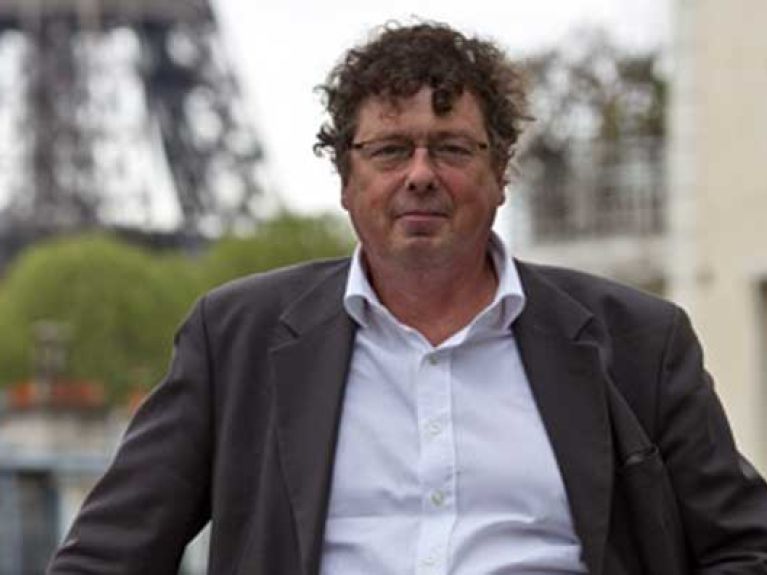“I’m in favour of a Europe of minorities without national barriers”
Joachim Umlauf, Director of the Goethe-Institut in Paris, measures Europe by the way it treats its weakest members.

Mr. Umlauf, is Europe facing not only a financial crisis, but also a crisis of cultural identity? Shouldn’t the time have now come for culture, the time for a big idea?
The focus on a supposed cultural or even ethical crisis does not appeal to me in as far as it takes us into unpleasant ideological waters. Ultimately, it implies that European societies are politically committing themselves more and more to an aggressively liberal international economic order at the needless expense of social differences in national contexts and abandoning the idea of social community. In France and Germany, countries that I know, I only see that to a very limited degree. It appears clear to me, however, that Europe finds itself in a kind of generational crisis; that the younger generation that is now assuming responsibility takes much for granted that is based on the great accomplishments of preceding generations.
What is actually the unifying element in European culture – if we leave aside the historical lines of communication for once?
If we talk about artistic production in the narrower sense, it becomes clear that generally it is not nationally focused, but subject to superior international standards. It is paradoxical, but art is only “renationalized” in its foreign policy representation – for example, by cultural institutes. And then, however, in a shape and form that harks back to what actually unifies European culture. In that sense, cultural policy everywhere in Europe attempts to preserve the linguistic and artistic means of expression, and it does so not only within its own (multi)culture, but also with regard to the intercultural influences that come from outside – beyond the cultural or even national hegemonic ambitions which would have largely dominated the field in the past.
High unemployment and a lack of prospects. What can culture achieve in a climate like this?
I consider it fatal to play the influence of culture – not only as participation in the production and reception of artistic works, but also in the form of learning a foreign language – off against social needs. Freedom and humanity can only develop and be defended where human beings receive the chance to experience themselves as free beyond material needs. That forms the basis of our civilization.
Héctor Abad, the Colombian writer, is afraid Europe has lost the enthusiasm of its early years. He believes that this contains the danger of populists leading the EU back to nationalistic nightmares.
I doubt that Europe ever elicited such great enthusiasm and joy in broad strata of the population. In reality, until a few years ago, Europe was not a real domestic policy issue. The new populisms of Right and Left are indeed extremely worrying. In the end, the European utopia will be measured by how we treat our weakest members. The sinti and roma are a good example for this. My cultural yearning is therefore a Europe of minorities without national barriers.
How do you perceive the mood in your host country France? And how are you responding to this in your programme?
The political differences between Germany and France and their cultural and social implications reveal the great importance of intermediary organizations – even in close and functioning relationships. Essential awareness of the other has to be communicated to each generation anew. Frictions have the advantage of making standpoints clear, whereby profound understanding of the other does not always, but often requires knowledge of the language. We respond in our literary events by explaining and mediating, and attempting to allow the positions of the other to become understandable.
DR. JOACHIM UMLAUF is Director of the Goethe-Institut in Paris and Country Director for France. The German studies specialist and translator was previously in charge of Heinrich Heine House in Paris and the Goethe-Institut in Amsterdam/Rotterdam in the Netherlands. www.goethe.de

